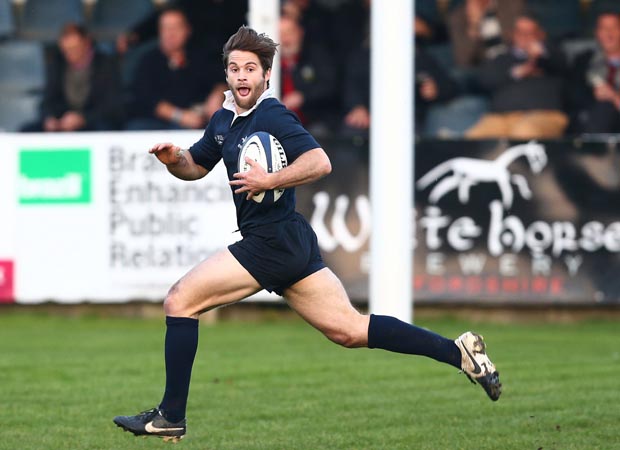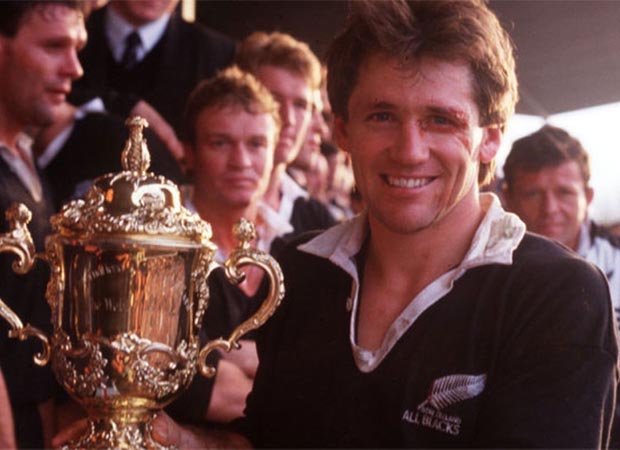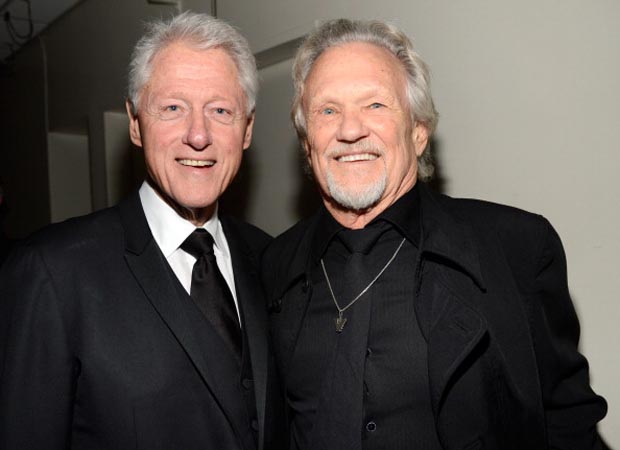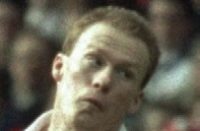 So little done, so much to do. They may or may not be the last words of Cecil Rhodes on his deathbed aged just 48 – the academics are still arguing about that one – but they certainly set the tone for those who carry on his name at Oxford University.
So little done, so much to do. They may or may not be the last words of Cecil Rhodes on his deathbed aged just 48 – the academics are still arguing about that one – but they certainly set the tone for those who carry on his name at Oxford University.
If you are a Rhodes Scholar at Oxford you are expected to make a splash, one way or another, even among the world's youthful elite gathered from all four corners of the globe. The one thing you cannot be is ordinary and invisible. Your mandate is to roll your sleeves up, get stuck in and make some noise.
You must shine brightly, as befits a scholarship scheme underwritten by the world's richest diamond and gold mine owner of his time whose estimated annual income even 120 years ago was over £1m, or about £600m by today's standards.
And that includes the sports field, especially the rugby pitch it would seem, where scores of Rhodes Scholars from the Commonwealth and the USA have come to Oxford's aid in the last century or more. That list now includes this year's captain Jacob Taylor, from Australia, the first Rhodes captain of the Blues since fellow Australian Professor Phil Crowe, former Wallaby wing, in 1982.
Taylor also follows in the shoes of Chris Laidlaw and Tommy Bedford to name but two other Rhodes alumni who have captained Oxford. Another leading light from relatively recent history, meanwhile, was Dave Kirk who retired from Test rugby at the age of 26 after captaining New Zealand to victory in the first World Cup in 1987 and spent the next two years playing for Oxford while studying PPE at Worcester College.
There have been some interesting near-misses as well. It takes all sorts and Taylor might also reflect that another rugby-playing beer drinking, song-singing Rhodes Scholar who recently hosted the G20 summit in Brisbane – namely Australia's new Prime Minister, Tony Abbott.
Despite playing for the Blues XV for much of the autumn term in 1981 and being acknowledged as the team's choirmaster, Abbott lost his place in the team just before the Varsity match and never gained his Blue. Not greatly amused he concentrated, successfully, thereafter on winning a Boxing Blue and the occasional unsuccessful attempt on fellow Rhodes alumni and Australian Prime Minister Bob Hawke's world record of 11 seconds for a yard of ale at University College in 1953.
In reality the Rhodes Scholarship takes little account of sporting, or indeed drinking, ability, it's just that many driven individuals make good sportsmen. Rhodes himself didn't have a sporting bone in his body and endured lifelong ill-health. The only oblique sporting mention in the scholarship's original terms of reference is that candidates should also be encouraged to participate in “manly sports such as cricket”.

Otherwise the criteria is fourfold: Literary and scholastic achievement; energy to use your talents to the full; truth, courage, kindliness, fellowship, devotion to duty and sympathy for the protection of the weak; moral force of character and an interest in fellow human beings. No pressure then.
“It's quite humbling when you walk into the Rhodes building and the Rotunda and look at some of the names, I get imposter syndrome if I am honest,” says Taylor who used to play on the IRB Sevens circuit for Australia but is now concentrating on his DPhil in Anthropology.
“The questions, ‘what am I doing here', and ‘am I really to be counted among these kind of people?' come to mind. They were so talented and had so many strings to their bows. How did they do all that? But it's an incredible platform to experience Oxford, and a really special gift to have these years at Oxford with such support.
“With the scholarship there definitely comes an expectation that you engage in the Oxford community with your whole spirit and that you don't just confine yourself to academia.”
Despite Taylor's recent emergence the Rhodes Scholar ‘rugbyhead' is now a rare breed but historically it has ebbed and flowed with the two decades after the World Wars – with older overseas Antipodeans and Americans coming over to take up places delayed by hostilities – being the high watermark. In 1929 five of the Oxford pack were Scholars no less and that Oxford team, in fact, boasted only four English players.

Ironically those periods of ‘feast' always sparked a backlash of ‘famine' among the academic powers-that-be who then seemed sometimes to deliberately ignore those with a rugby dimension to their already impressive CVs. So much so that class players with a more than decent academic background started looking elsewhere, sometimes, God forbid, the ‘other place'.
The Scholarship scheme currently takes in 83 students a year from 14 countries mainly from the Commonwealth but also including USA and Germany. It pays for tuition fees and accommodation fees – no small consideration – and offers a stipend to live on, not luxuriously but not as a pauper, either. At the start of the course it will pay for an economy fare flight from anywhere in the world you happen to be and on graduating it will also fly you, economy, to your home nation. Basically you lack for nothing.
A great imperialist – “Remember that you are an Englishman, and have consequently won first prize in the lottery of life”, was one of his authenticate quotes – Rhodes lived in hope of enticing the USA back into the ‘Empire' and one way of doing that was educating an Anglophile American elite. To this day a whopping 32 of the 83 available places annually go to the USA with the most notable alumni probably President Bill Clinton.
Although the Americans turn mainly to athletics, rowing, ice hockey and basketball at Oxford, three have won Rugby Blues.
Peter Dawkins – who scored the highest marks ever recorded at West Point in the four categories they test young officers – is credited with introducing the American Football style torpedo throw into rugby especially at lineout time.
One who missed out, however, was a fresh-faced Kris Kristofferson who arrived at Oxford from Pomona College, California, with the reputation of being possibly America's best ever college rugby player. Once installed, however, he became so immersed in his BPhil in English literature and developing an emerging talent as a song writer that he ‘only' had time to win a Boxing Blue.
The rest is hysteria, as they say.
Trying to fit everything in is possibly the biggest challenge as Kristofferson discovered. So little done, so much to do.
“Captaining the Blues as well makes life pretty busy, especially this term and I need to make a special ‘shout-out' to my supervisor Dr Emma Cohen,” continued Taylor. “Luckily she is a sports-loving Irish lady who understands how it is, how busy I am this term and how committed I am to my studies and making up for lost time after Christmas.
“Another stroke of luck is that my research focus is in the area of sport, what we call auto-ethnographic, so to an extent I can learn while I am playing and training! For my Masters thesis last year I focused on the University rugby club and basically conducted an anthropological look at teams, which is in the process of being published now. In particular it involves looking in some detail at how exercising together in groups is a social bonding process and what are the mechanisms in that process.”
How a rugby club works and runs? Fertile ground indeed. I can think of only two possible authors of such a piece.
Jacob Taylor, of Keble College, Oxford, or Brian Rix. We await publication with much interest.
*This article was first published in The Rugby Paper on November 23.




























Pingback: you can find out more